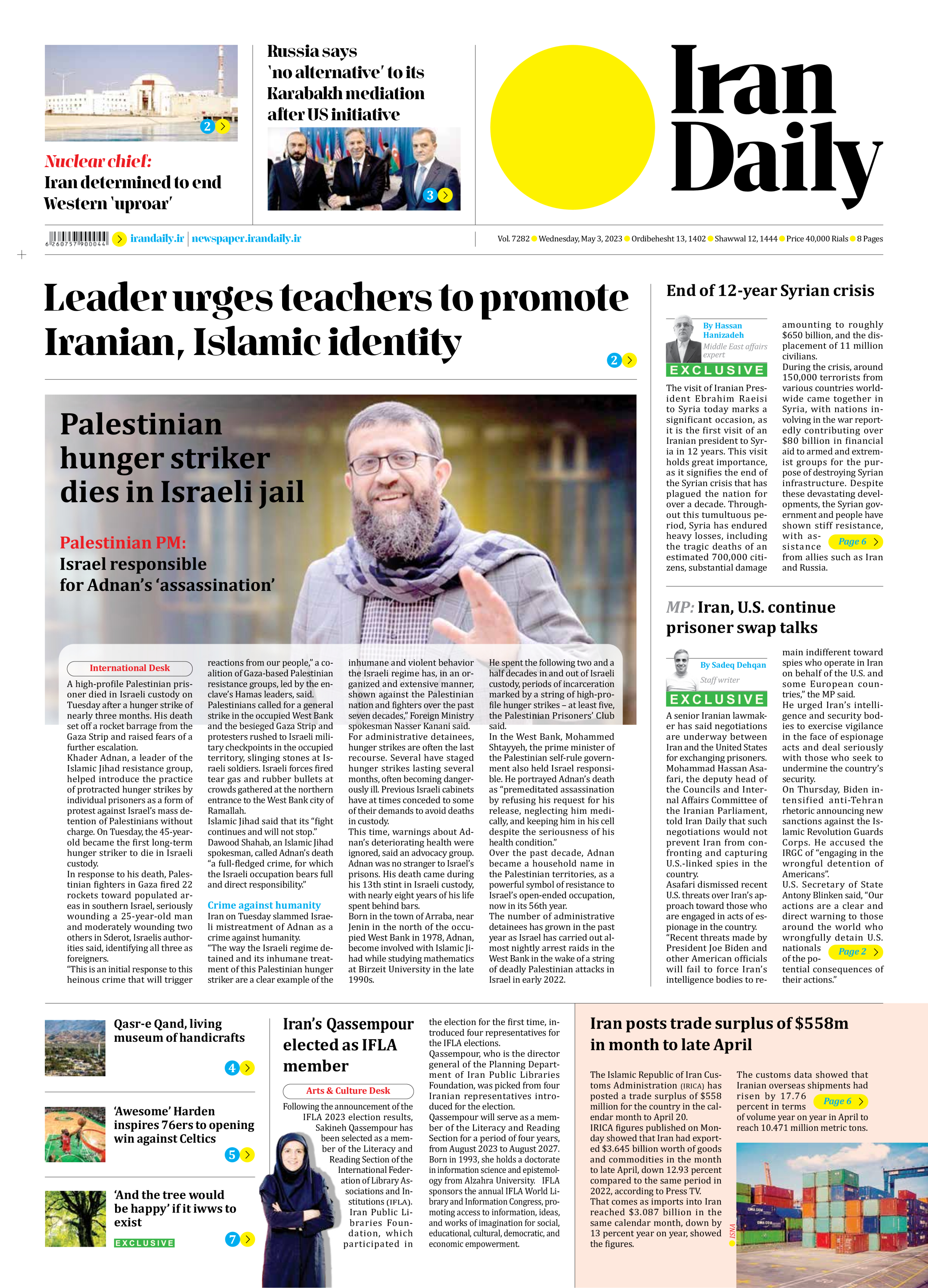
End of 12-year Syrian crisis
By Hassan Hanizadeh
Middle East affairs expert
The visit of Iranian President Ebrahim Raeisi to Syria today marks a significant occasion, as it is the first visit of an Iranian president to Syria in 12 years. This visit holds great importance, as it signifies the end of the Syrian crisis that has plagued the nation for over a decade. Throughout this tumultuous period, Syria has endured heavy losses, including the tragic deaths of an estimated 700,000 citizens, substantial damage amounting to roughly $650 billion, and the displacement of 11 million civilians.
During the crisis, around 150,000 terrorists from various countries worldwide came together in Syria, with nations involving in the war reportedly contributing over $80 billion in financial aid to armed and extremist groups for the purpose of destroying Syrian infrastructure. Despite these devastating developments, the Syrian government and people have shown stiff resistance, with assistance from allies such as Iran and Russia.
As a result, Syria is gradually emerging from this long period of instability and entering a phase of peace and stability.
The Iranian president’s visit holds great significance, as it sends a strong message that Tehran will stand by Damascus in times of both war and peace. Moreover, several Arab countries have recently visited Syria, with Syrian officials engaging in diplomatic meetings and trips with Arab officials, indicating Syria’s gradual reintegration into regional and international affairs. Additionally, discussions surrounding Syria’s return to the Arab League have been brought to the forefront. Thus, after 12 years of strife, Syria appears to be on a path toward recovery and rebirth.
Drawing on its vast experience in post-war reconstruction, Iran is preparing to offer aid to Syria in its reconstruction efforts. The forthcoming visit of the Iranian president is expected to yield crucial agreements between the two countries, spanning a range of fields.
However, beyond the immediate benefits of this reconstruction, a more significant development is in the making. With Syria’s gradual reintegration into regional and international affairs, and the failure of terrorist groups and their supporters to topple the government of Bashar al-Assad, a broad coalition of Iran’s allies is taking shape in the region. This coalition comprises Syria, Lebanon, Iraq, Yemen, and Palestine, poised to counter the influence of Israel.
Notably, Israel has been the primary aggressor against Syria over the last 12 years, but its efforts to achieve its objectives have fallen short. As Syria begins to reassert its regional role with greater confidence, it is reasonable to anticipate that these developments will strengthen the Islamic Republic of Iran’s influence in regional relations. Indeed, Tehran has been the most steadfast supporter of Damascus throughout the Syrian crisis, and the benefits of their partnership are now coming to the fore.







